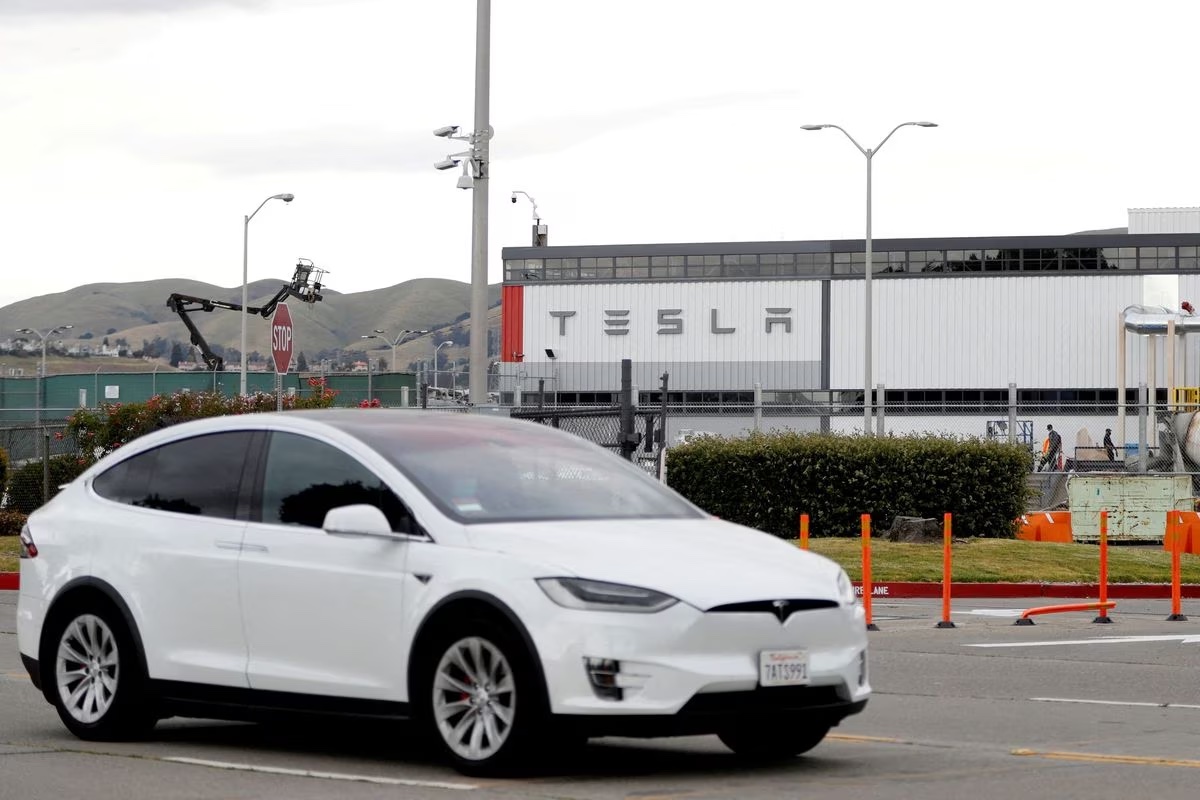April 3 (Reuters) – A federal jury in San Francisco on Monday ordered Tesla Inc (TSLA.O) to pay about $3.2 million to a Black former employee after he won a racial harassment lawsuit against the electric-vehicle maker, far less than the $15 million he rejected last year in opting for a new trial.
The verdict came after a week-long retrial in the 2017 lawsuit by plaintiff Owen Diaz, who in 2021 was awarded $137 million by a different jury. A judge agreed with that jury that Tesla was liable but said the award was excessive. He ordered a new trial on damages after Diaz declined the reduced $15 million award.
Diaz had accused Tesla of failing to act when he repeatedly complained to managers that employees at the Fremont, California, factory frequently used racist slurs and scrawled swastikas, racist caricatures and epithets on walls and work areas.
The jury on Monday awarded Diaz, who worked as an elevator operator, $175,000 in damages for emotional distress and $3 million in punitive damages designed to punish unlawful conduct and deter it in the future.
Tesla CEO Elon Musk in a tweet said “the verdict would’ve been zero” if the judge had allowed the company to introduce new evidence in the retrial.
Musk added: “Jury did the best they could with the information they had. I respect the decision.”
The company has said it does not tolerate workplace discrimination and takes worker complaints seriously.
Bernard Alexander, a lawyer for Diaz, urged jurors during closing statements on Friday to award him nearly $160 million in damages, and send a message to Tesla and other large companies that they will be held accountable for failing to address discrimination.
“Mr. Diaz’s outlook on the world has been permanently changed,” Alexander said. “That is what happens when you take away a person’s safety.”
Tesla’s lawyer, Alex Spiro, countered that Diaz was a confrontational worker who had exaggerated his claims of emotional distress, and said his lawyers failed to show any serious, long-lasting damage caused by Tesla.
“They’re just throwing numbers up on the screen like this is some kind of game show,” Spiro said.
Lawyers for Diaz did not immediately respond to requests for comment on the verdict.
CASE SEEN ‘FAR FROM OVER’
The verdict was surprisingly low considering the egregious conduct for which Tesla was found liable, said Ryan Saba, a Los Angeles-based employment lawyer who was not involved in the case.
But it could be cut even further because punitive damages are typically capped at no more than nine times the amount of damages for emotional distress and other injuries, Saba said. The punitive damages awarded by the jury on Monday were nearly 20 times the damages for emotional distress.
“I expect both sides will appeal,” Saba said. “This case is far from over.”
Diaz testified last week, tearfully recounting various incidents during the nine months that he worked at the Fremont factory. Diaz said the job made him anxious and strained his relationship with his son, who also worked at the plant.
Lawyers for Tesla highlighted what they said were inconsistencies in Diaz’s testimony and repeatedly raised the fact that he did not lodge written complaints to supervisors. Diaz testified that he verbally complained to managers numerous times and discussed his complaints with Tesla human resources officials.
The EV maker is facing similar claims of tolerating race discrimination at the Fremont plant and other workplaces in a pending class action by Black workers, a separate case from a California civil rights agency, and multiple cases involving individual workers. The company has denied wrongdoing in those cases.
Diaz had sued Tesla for violating a California law that prohibits employers from failing to address hostile work environments based on race or other protected traits.
The first jury in 2021 awarded Diaz $7 million in damages for emotional distress and a staggering $130 million in punitive damages. The award was one of the largest in an employment discrimination case in U.S. history.
U.S. District Judge William Orrick last year agreed with the jury that Tesla had broken the law, but said the award was excessive and cut it to $15 million.
Orrick said Diaz had worked at the factory for only nine months and had not alleged any physical injury or illness warranting a higher award.
On Friday, Orrick denied a motion by Diaz’s lawyers for a mistrial. They claimed Tesla’s legal team violated Orrick’s bar on introducing new evidence in the retrial by questioning Diaz and other witnesses about incidents where he allegedly made racist or sexual comments.
Orrick said those questions were related to other incidents discussed in the first trial, and that Diaz’s lawyers had not shown that the questioning prejudiced the jury.









